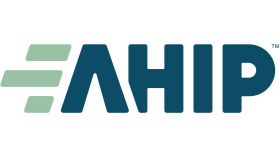
Hot Topics in Health Reform

One of the featured workshops at the America's Health Insurance Plans Institute 2012 on Wednesday was the Health Reform Advanced Studies Workshop, which was an interactive session that touched on a number of healthcare issues. Here are some of the highlights.
One of the featured workshops at the America's Health Insurance Plans (AHIP) Institute 2012 on Wednesday was the Health Reform Advanced Studies Workshop, which was an interactive session that touched on a number of healthcare issues. Here are some of the highlights.
One of the topics up for discussion was value-based insurance design (V-BID). The following quote from AJMC Co-Editor-in-Chief Mark Fendrick, MD, was used to define value-based design programs:
“The basic premise of value-based insurance design is to remove barriers to essential, high-value health services. V-BID programs improve health outcomes at any level of healthcare expenditure…Employers can contribute greatly to the transformation of the health system by focusing on value and not simply on financing and who pays. It is imperative that we move beyond the current paradigm of exclusively measuring medical offsets, and include measurement of the effects in increased productivity that accompany improvements in health.”
The discussion then shifted to the importance of “making health the Chief Financial Officer’s (CFO) business"; 48% of health and productivity leaders and 23% of other CFOs believe that health is “very important” to workplace productivity. The following are pathways linking health to poor financial performance:
- Increased healthcare costs
- Increased sick days
- Excess labor costs
- High turnover
- Absence payments
Those that work with CFOs should access the solid business case information that is available; advocate a culture of health; and start with maximizing available internal information.
Another topic that was discussed in the workshop was accountable care organizations (ACOs). The idea behind ACOs is that there is a dire need for coordinated care in order to improve the current, fragmented healthcare system. Often times, patients receive duplicate tests and treatments or miss out on preventative care because it is overlooked. ACOs aim to reward quality care and allow for decision making at the provider level. Additionally, the financial incentive programs for ACOs will be determined by comparing the organization’s annual incurred costs relative to the Centers for Medicare and Medicaid Services established benchmarks.
Long-term care (LTC) is another costly and problematic issue plaguing out current healthcare system that was discussed during the workshop. Costs associated with LTC can amount to thousands of dollars per month and can lead to impoverishment. And, contrary to popular belief, LTC is not limited to the senior population; there are many younger individuals who need LTC services as a result of the early onset of debilitating diseases. So, what is the scenario in a post-Community Living Assistance Services and Supports (CLASS) Act world? The focus is now on the private LTC insurance market to provide protection. Additionally, the
Next up for discussion was medical identity theft. Here are some surprising statistics that you may not be aware of:
- The Federal Trade Commission estimates that the annual losses to business from data and identity theft amount to almost $50 billion.
- Approximately 90% of our ethical hacking tests are successful in gaining access to highly sensitive information.
- Medical identity theft represents 3% of all US identity theft cases each year, and amounts to approximately $468 million annually.
- In the first quarter of 2009, 13 breaches were reported that impacted more than 68,000 medical records.
- Despite the massive risk involved, medical identity theft is the least studied and most poorly documented type of identity theft.
- Medical identity theft is incredibly hard to rectify after a breach because of the limited rights and recourses that victims have; additionally, medical identity theft leaves a trail of falsified patient information that can plague victims’ medical and financial lives for many years.
In short, this is an area of healthcare that needs more attention. The ramifications of medical identity theft are far-reaching, and, unfortunately, it is a crime that is committed more than most people are aware. How can you avoid having your medical identity stolen? Carefully read your Explanation of Benefits (EOB) statements; order copies of your credit reports; and ask for a copy of your medical records.
To learn more about these hot topics in health reform, please visit the
Newsletter
Stay ahead of policy, cost, and value—subscribe to AJMC for expert insights at the intersection of clinical care and health economics.









